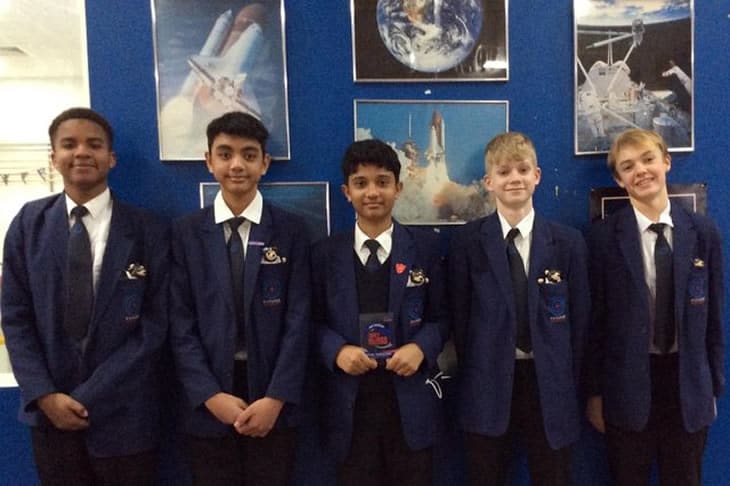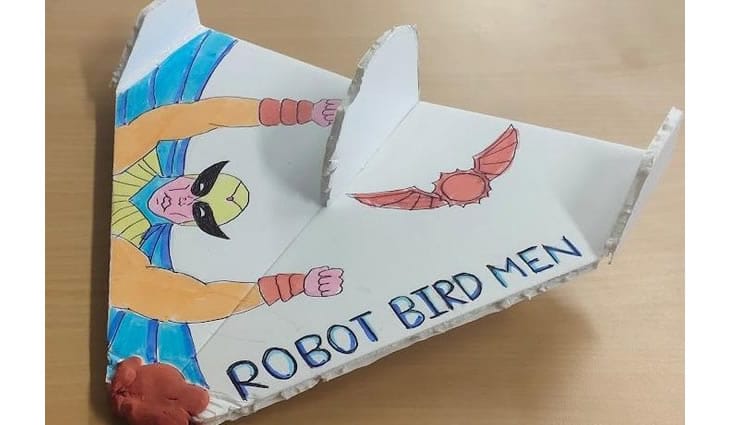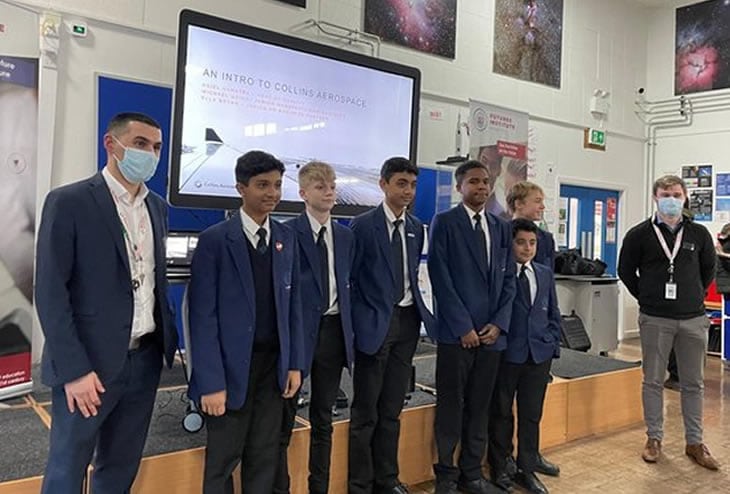Students from Futures Institute joined students from 24 other schools from across the country as they made gliders for a nationwide competition organised by RAF Cosford Museum.

Jayden, Anay, Kristen, Baillee and Jed won a category at a RAF Gliders competition.
The glider produced by five 13-year-old students at Futures: Anay, Jed, Baillee, Kristen and Jayden won the distance challenge.
All the year nine pathway students at Futures who took part in the competition were presented with a British Science Association CREST Discovery Award for successfully completing all elements of the challenge.

The plane created by students at Futures Institute, which won the distance challenge.
Anay said: ‘’We’re so pleased to have produced the glider that could travel the longest. It was a great feeling to find out we had won this category.
‘’We all had to work as a team and collaborate to create our design for the glider and produce the power point presentation.’’
Baillee said: ‘’It was definitely a challenge and we made mistakes along the way but worked out how to correct our errors. For example we really struggled with the triangular wings and had to make five different prototypes as the wings weren’t trapping enough air.
‘’As we made our mistakes, we corrected them and learnt as we went along.’’
The students said they enjoyed working as a team and learning how to collaborate effectively. Futures is a STEM-focused school and the students also loved the creativity involved in bringing a science project to life.
Jed said: ‘’Everyone loved this project because we came up with a creative idea and worked on it as a team to bring it to life instead of just writing stuff down all day and listening to a teacher. During our presentation we had to outline why we chose our glider design and why we thought we should win.’’
Dr Cat Pickup at Futures Institute chose to enter the students in the RAF competition as it allowed them to focus on project-based learning. This is a unique aspect of teaching at Futures which has a STEM (Science, Technology, Engineering & Mathematics) curriculum.

Visitors from Collins Aerospace Aniel Ganatra (Head of Quality ), Michael Quinn (ex student of the school, manufacturing apprentice) pictured with students Jayden, Anay, Kristen, Baillee and Jed.
The students were also able to call upon the expertise of local employer Collins Aerospace and two retired engineers: Dr Tim Goodhead from Warwick University and Peter Bridgewater from Welsh Water. They all provided valuable guidance to the students.
Dr Pickup, who is director of project-based learning at Futures, said: ‘’Project-based learning helps students to acquire the skills needed to succeed in the workplace.
‘’They’re working in teams, collaborating to create a product that works and also learning to present and pitch their design to others. Project-based learning also allows the students to combine elements of learning from different subjects, this is known as Applied Transdisciplinary Learning and is part of the curriculum at Futures.
‘’I’m extremely proud of our year nine class who all took part in the competition and achieved Crest awards for their weeks of work. They worked incredibly hard and showed tenacity and drive in creating their finished designs.’’
The RAF competition is sponsored by the Royal Air Force Youth Engagement Team.
All schools taking part were sent a four-week lesson plan to be covered prior to competition day. A resource pack was also sent out and guidance on the research and design element of the competition.
This report is also available here: Banbury Guardian

